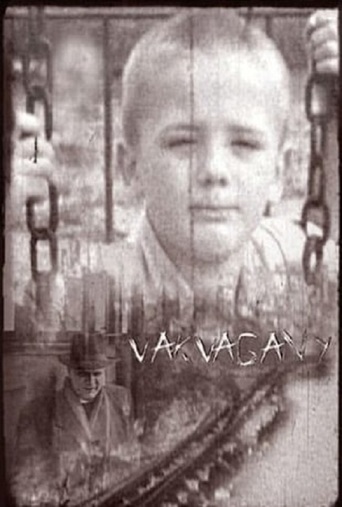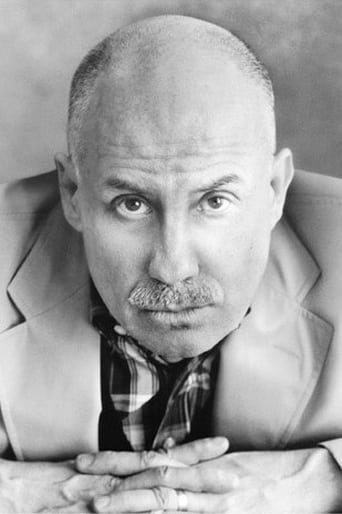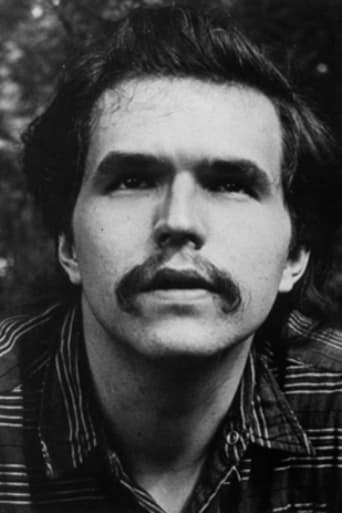

Vakvagany (2002)
Hungarian home movies are examined by the likes of James Ellroy and Stan Brakhage for evidence of family problems.
Watch Trailer
Cast
Reviews
Simply A Masterpiece
There's no way I can possibly love it entirely but I just think its ridiculously bad, but enjoyable at the same time.
The best films of this genre always show a path and provide a takeaway for being a better person.
A clunky actioner with a handful of cool moments.
I purchased a copy of "Vakvagany" at a film festival in Kansas City and was treated to a pioneering piece of film. Meade has taken the medium of family home movies and transformed it into an art form, worthy of criticism and interpretation (which, of course, he also does). Critics of "Vakvagany" most certainly will attack the filmmaker's invasion of privacy to get what he wants out of Etruska, but I found his introduction of her to be one of the most moving moments in the film. Both Eturska and Erno are the personification of abuse victims: they are portrayed as awkward children in these home videos, playing parts in the role of a "happy" family while, after the cameras turn off, only the Locseis themselves know the extent of the abuse inflicted upon these children, if any at all. Erno and Etruska are the epitome of tragic characters. The abuse at the hands of a seedy father and alcoholic mother have molded them into, quite frankly, pathetic adults. And the only way we can gauge the full effect of their traumatic childhood is to see these two in the flesh, to see that Etruska lives in squalor and still hasn't faced the proverbial demons of her past, instead shutting down completely. In a sense, Meade has done a favor to Etruska and Erno by exposing their lives for us to see, to alert us to the plight of the "survivor" of a dysfunctional family. It is through these two that we can recognize the acts that the Locseis display for the camera likely veiled a darker side of the family.My comments here roughly reflect what I got out of the movie: that our home movies indeed turn us into actors, that we sometimes present ourselves to the viewer in a different light and that, try as we may, our true nature still could shine through. And after the filming is done, we need to be able to take responsibility for our actions and our treatment of our family and to account for what we have produced (in this case, the Locsei "children"). While the home movie is a snapshot in time, it also is a case study of the inner workings of the family unit. I believe Meade is telling the viewer that we have a responsibility to face what our family has molded us into as adults, no matter how horrible. Amid all of the criticism "Vakvagany" has received, Meade should know that he has at least one fan who recognizes his film for what it is: a trailblazing look at humanity.
This is a fantastic piece of filmmaking. Benjamin Meade has taken something as mundane as the home movie and created a stunning work. What is fascinating is that there is so much in this quasi- documentary that is shown. We follow a family, but like all families they have their history and live in a world that has history. They are their own world, and part of the world around them.The narration- comments that occur durring the film remind us of that. The family has their life, but part of that life is in the world in which they live.Then, we seek the family today. We wonder what happened to that family that we watched and became interested. This is where we literally jump into the screen. The director meets the son depicted in the home movies. We see what has happened to the son, raising questions about the rest of the family. We seek the daughter. This is where the director Meade shows what kind of film this is. Instead of being a dispassioned reporter, he has involved himself in this family. When there are questions about the wellbeing of the sister, the director involves himself, and the audience via the camera, in finding the answer.Does he take things too far? That is what each of us have to answer of ourselves. I guess it all depends on whether you can be compassionate with a camera in your hands. But, the audience should be greatful that they were taken on the journey.It also raises another interesting question. While much of the film takes place in Hungary, there is nothing that says that it could not happen in New York, or California, or Kansas. What do our home movies tell about us. What have we done since we were children? Are there hints in anyone's childhood that says where they are going?See the film, make your own judgements.
The found films that serves as the basis for Vakvagany are fascinating, and the commentary by special guests James Ellroy, Stan Brakhage, and Roy Menninger at times is thought-provoking, but filmmaker Benjamin Meade crosses a dangerous line with this film in the final reel, as he literally breaks into someone's home in order to film them. Perhaps that would have been justified if the subject were a secluded war criminal. Unfortunately, Meade's victim is a slightly disturbed though quite coherent middle aged woman who is thoroughly aware of the pornographic intentions of the director's camera. In an afterthought segment aired after the film on the Sundance Channel, Meade admits that he went too far. Self awareness is important, but it came too late to save an otherwise fascinating piece of work, making Nick Broomfield look like Miss Manners in comparison.
This is a film that deserves much more attention then it will probably ever receive. "Vakvagany" is at different times disturbing, thought-provoking, and hilarious. It is a documentary done by a relatively unknown director, and yet it is not only as good as any documentary film you will ever see, but to its great credit, it is also probably as accessible to a mainstream audience as a film like this could be. Hopefully the inclusion in the film of the renowned author and personality James Ellroy (at his wry best) will create an audience for the film; it has a timelessness about it that should allow it to sustain its relevance and impact over time. Three different perspectives about a series of remarkable old "home movies" that were discovered in a decrepit apartment in Hungary are provided by a filmmaker, a psychologist, and an author. Their vastly contrasting input provides the perfect framework for the astonishing footage that is the foundation of this film. The decision by the director Benjamin Meade to splice the comments of a panel of interviewees with disparate perspectives about a central subject reminded me of Errol Morris's great film "Fast, Cheap, and Out of Control."

